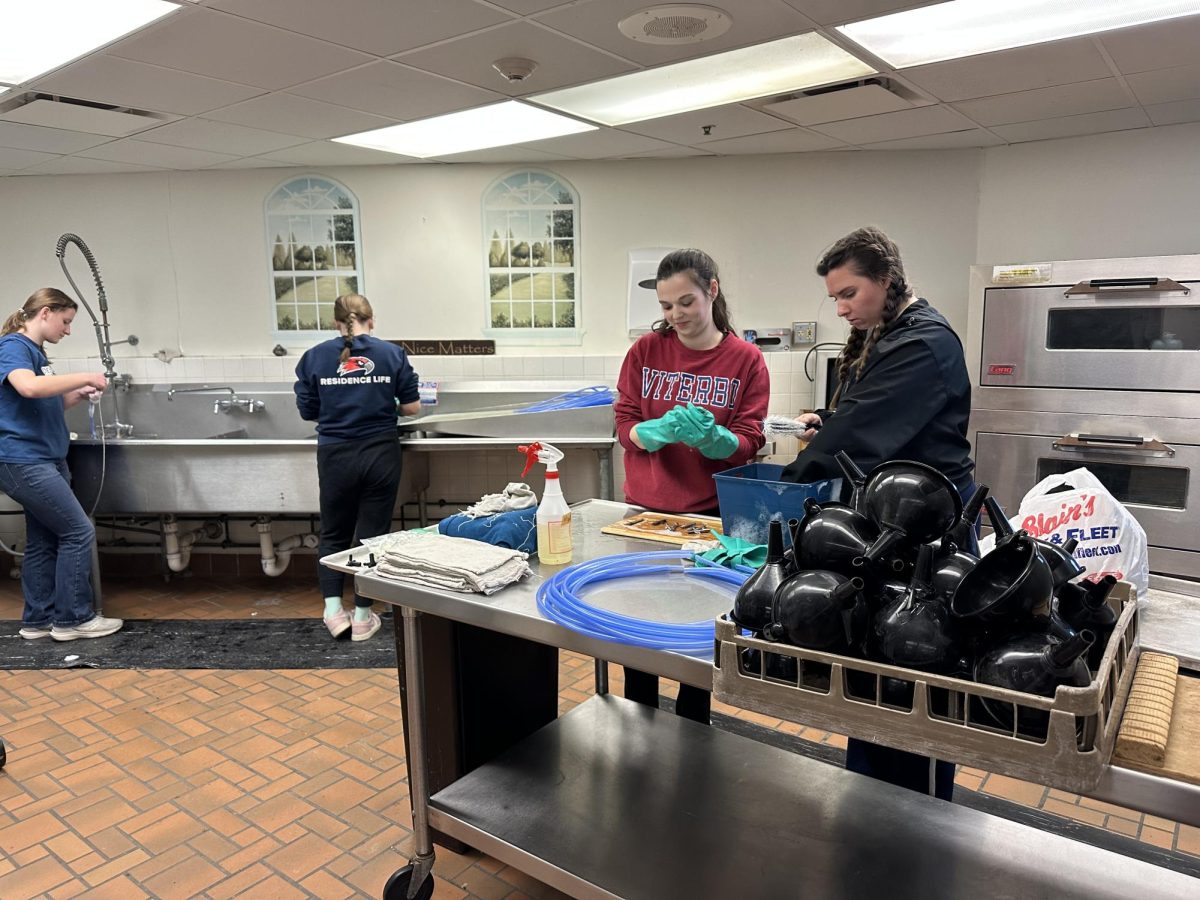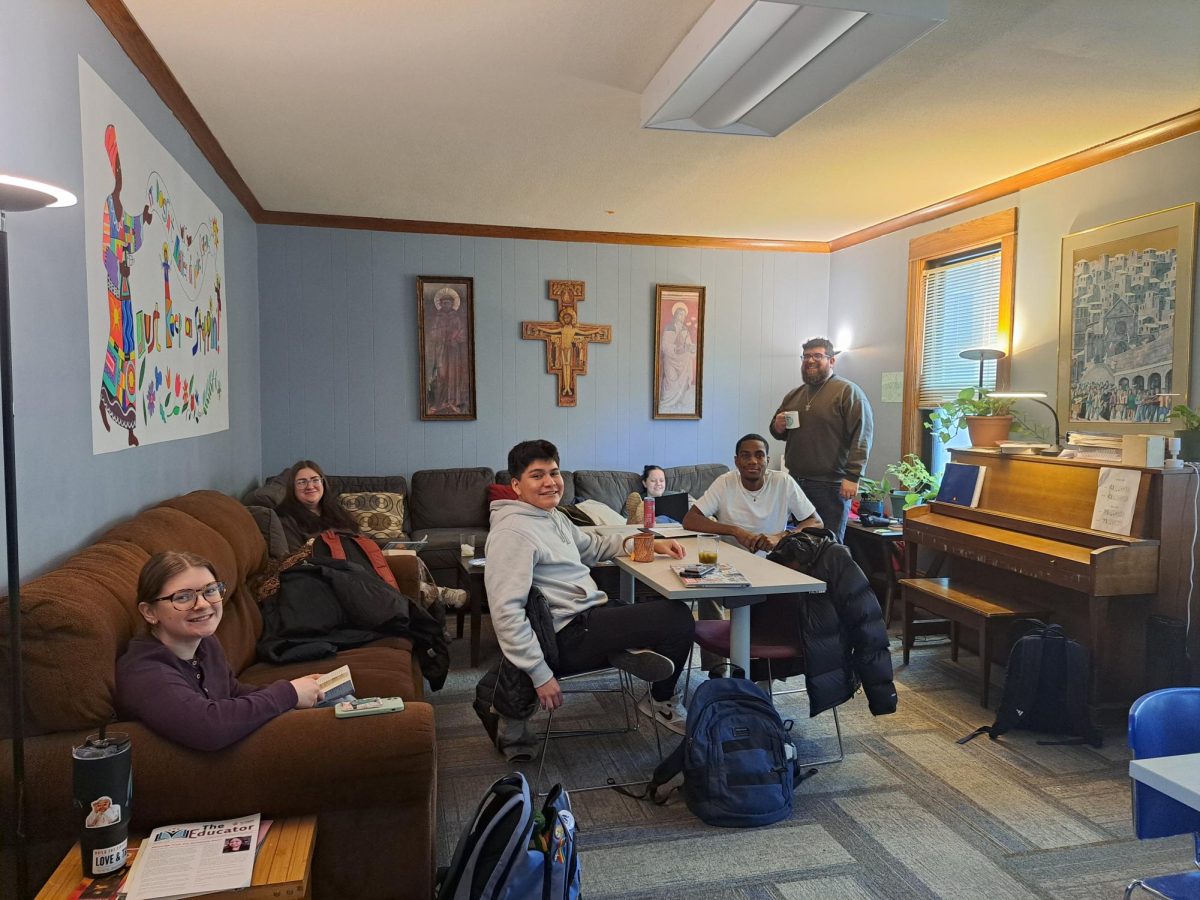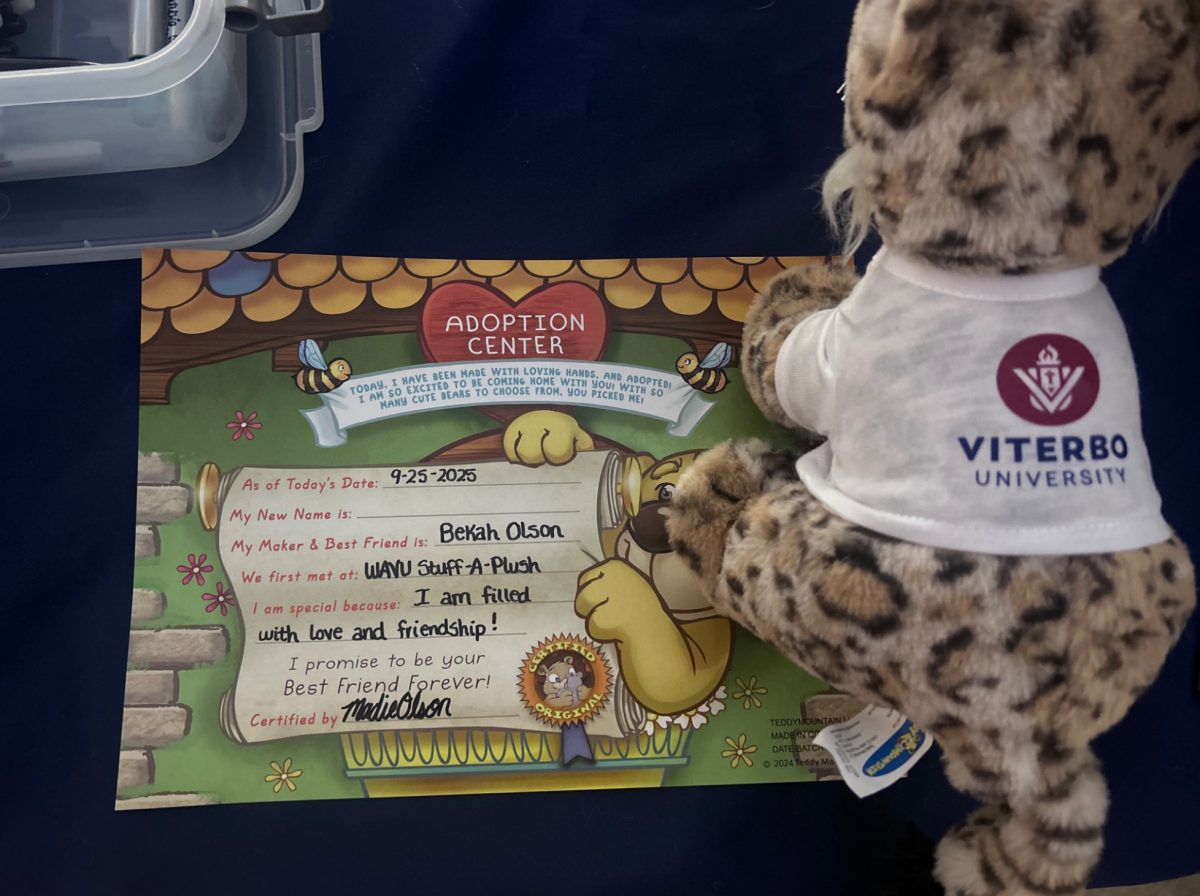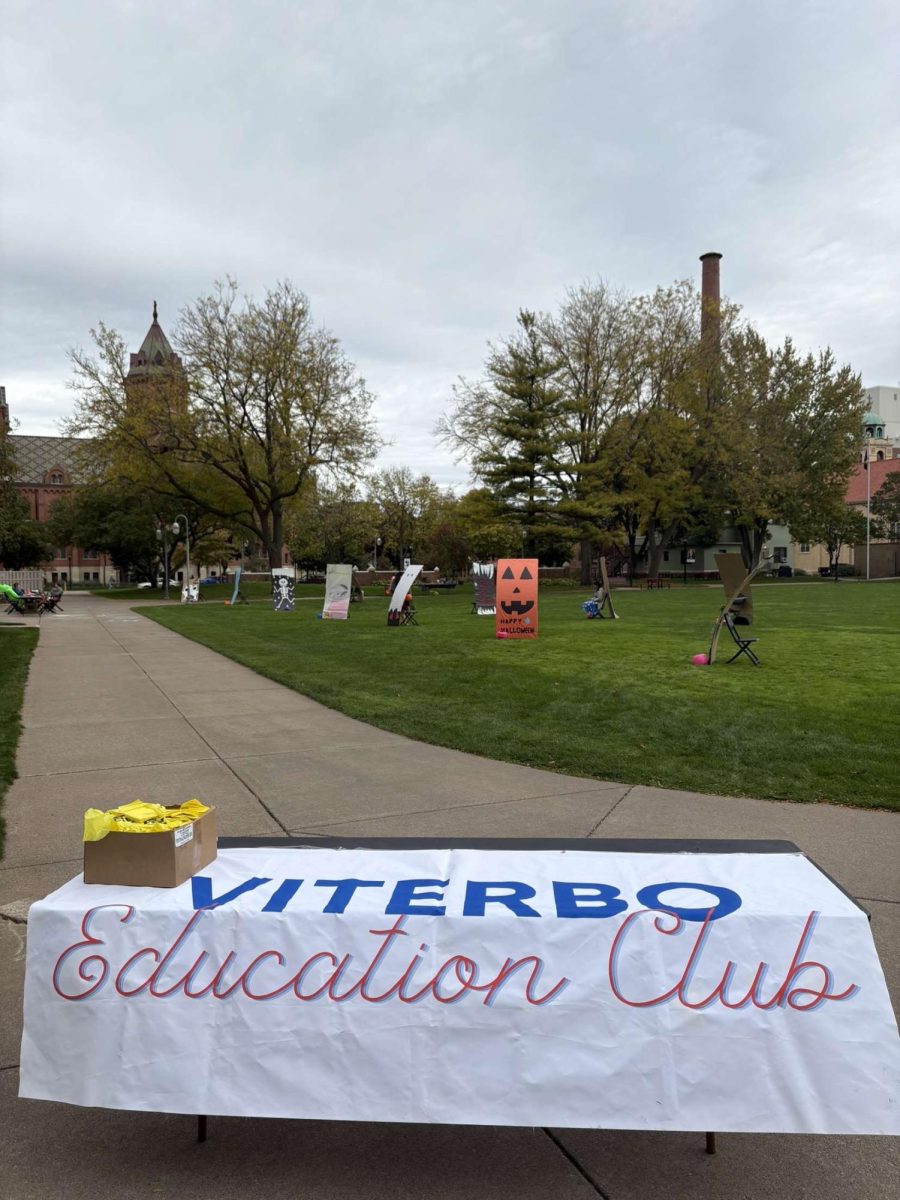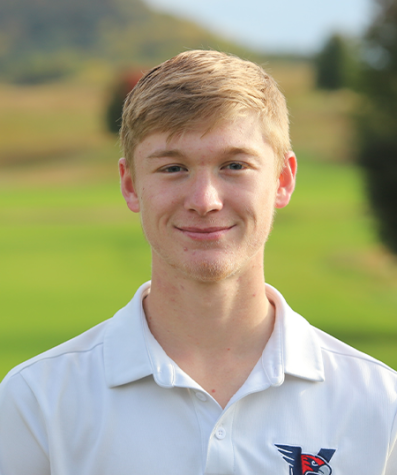
Every year, Riverside Park is illuminated with millions of lights for the annual Rotary Lights event. Throughout its 29-year history, the event has collected over five million non-perishable food items and distributed them to various food pantries. The event starts December 31 and will see almost 130,000 visitors.
Pat Stephens, Rotary Lights President, has been there since the event’s inception and is instrumental in the event’s successful management.
The event started in 1995 when a local Rotary Club member was visiting Oklahoma and saw a Baptist college hosting a light display. He was inspired to start something similar in La Crosse to help feed the community; the Rotary Light’s mission is to, “Feed the hungry of the Coulee region.” He brought the idea to the Chamber of Commerce and the search began for someone to take the project on. Stephens recalled, “So I said, ‘Oh, I can help with this,’ I raised my hand, and the rest is history as they say.”
With any project, determining the location is incredibly important. “The first choice for the project was Myrick Park… The zoo was still there at that point and so you could think of all the creative things you could do with the displays and animals.” The residents around the park were opposed, however, and believed that the traffic of such an event would be unfit there. The next thought was Pettibone, with their plentiful trees, gazebo, and beach access, but being so close to the water made it impossible to reliably host.
Of course, the event now takes place at Riverside Park and many La Crosse citizens couldn’t imagine it anywhere else.
The donations grew from 13,010 in its first year to 267,470 in 2021 and the event became established as a community icon during early winter.
Stephens struggled to understand the impact of the lights until the project was put into jeopardy following two severely detrimental incidents. “As close as I am to the project, I don’t think I ever realized how important the project was to the community itself.” In October 2021, there was a major theft of over $10,000 electrical cords and shortly after that, a large storm came through and swept away many tents and animatronic displays.
“After myself and others got done crying we said, ‘What are we going to do now?’” They could cancel the lights for the first time in their 26-year history or summon the courage to continue. They put out a call for help and over 100 people came to the park to support. Stephens said, “I know a lot of people, and I did not know half of them.”
He stressed how the community came together around the event. “[They said] we’ve got to get our Rotary Lights going again.” Stephens emphasized the cultural congruence that the event has with La Crosse. “I think La Crosse has a tremendous history of being very philanthropic.” These ideas are verified when examining the workforce of the event.
Every worker helping maintain and operate the event is a volunteer. Stephens said, “It’s 3,000 volunteers and for myself on down nobody gets a paycheck – it’s all volunteer.” There are 104 nonprofit organizations that signed up for shifts in 2023. Applications were sent out in September and people could fill out relevant demographics and work availability.
The Rotary Lights has many ancillary events, which also contribute to their mission. There are carriage rides, an ice rink, and a teddy bear promotion across the community. The teddy bears contributed $33,000 to their mission where they were able to purchase a walk-in cooler and other refrigeration for the Boys and Girls Club and YMCA.
The idea for a philanthropic lights show has grown outside of La Crosse into 16 other communities in Wisconsin and Minnesota. “We brought them down here and shared all our mistakes and all the things that went into it.” They have even had seminars teaching people about the importance of such community events.
Light shows from Mankato to Sheboygan have been inspired by La Crosse’s initiative, and communities are able to help feed themselves physically and spiritually. Stephens said, “I always feel the best about myself when I’m doing something good for others.”
Despite the obvious appeal to Viterbo’s core values, there are fewer volunteer groups than one may expect. “I’ve got 20 groups I think from UWL and only one from Viterbo,” Stephens said. He advises students, “It’s fun. It’s not that labor intensive. We have a great time; we feed you.”
